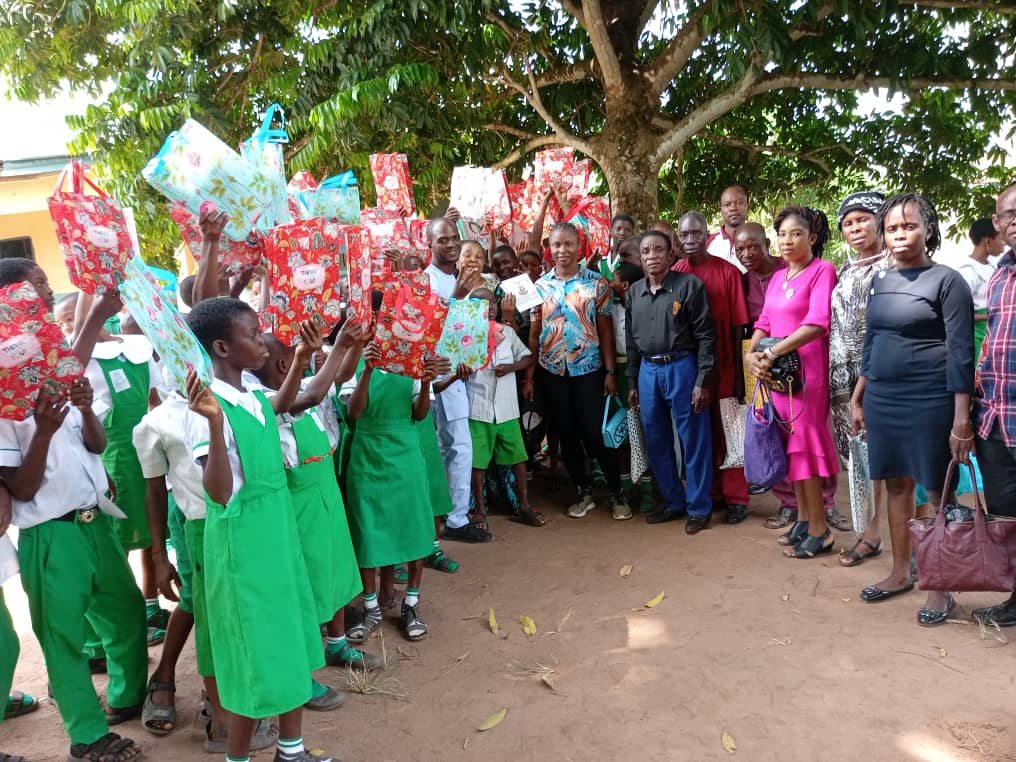Education
Russia Gets $110m Yearly as Tuition from 22,000 African Students

By Kestér Kenn Klomegâh
Russian President, Mr Vladimir Putin, has disclosed that the cooperation between Russia and Africa in education was “at a traditionally high level,” noting that about 27,000 African students are currently studying in the country, with 5,000 of them being sponsored by his government via scholarships.
He confirmed this development at the International Parliamentary Conference Russia–Africa in a Multipolar World held in Moscow under the auspices of the State Duma of the Russian Federal Assembly some days ago.
“This conference is undoubtedly important in the context of the continued development of Russia’s multifaceted cooperation with the countries of the African continent.
“We also consider this event a key part of the preparations for the upcoming second Russia-Africa summit scheduled to be held in St Petersburg in July,” he said.
“Cooperation between Russia and African countries in education is at a traditionally high level.
“Today, about 27,000 African students are studying in Russia, including 5,000 whose education is covered by the federal budget.
“At the same time, the annual quota for state-funded scholarships at Russian universities will be more than doubled,” he remarked.
In an interview with Kestér Kenn Klomegâh, Russia’s Ministry of Higher Education confirmed these figures, noting that the students pay an average of $5,000 as tuition per year.
It is believed that Russia targets these students to boost its image and public perceptions in Africa, as the growing contribution of Russian institutes and universities for training qualified personnel for African countries as part of the current relations is gaining momentum in the emerging new world.
This would, in practical terms, serve as a driver for diverse sectors in Africa. Understandably, Russian education could be an exportable service and/or unique product and has great market potential if strategically tapped, especially for Africa.
In various ways, Russian educational institutions could open their doors to the growing number of African elites, estimated at 350 million, almost the same size of the United States and double the population size of Russia. As part of the renewed interest in Africa, Russia has been working on opportunities and diverse ways to increase the number of students, especially tuition-paying agreements for children of the growing elite families and middle-class from African countries at Russian universities.
Chairman of the State Duma, Vyacheslav Volodin, was convinced that cultural and educational cooperation could be equally important areas that needed to be developed and intensified in Russian-African relations. That Russia could sustain noticeably close relations with African countries by promoting cooperation between ministries and departments and expanding scientific research, and engaging in exchanges.
Volodin further suggested to continue discussing issues of harmonizing legislation in the scientific and educational spheres and reminded hundreds of thousands of African students studying in the Soviet Union and Russia. “There is a rare need to develop Russian education export opportunities, take progressive measures to raise interest in Russian education among foreigners can achieve more in these areas, to know each other better and be more open to one another,” he stressed in his speech.
The system of higher education has always been and remains a powerful intellectual resource, generating new ideas and – this is what it was designed for, of course – to offer systematic training of labour for all areas of life in society. This serves as an investment into the achievement of the main target – training professionals that are in demand on the labour market.
Nevertheless, the Russian government is aware of the importance of international recognition of the Russian education system. Russian universities could inculcate diversified cultural tolerance, and take advantage of multiculturalism and cosmopolitanism – aspects of modern life – which are necessary prerequisites for any success in the now globalized world.
Taking steps to strengthen the Russia-African multifaceted relations in the education and cultural sphere, Russia’s Ministry of Higher Education has already launched a large-scale educational campaign abroad targeting Africa. The program, which seeks to boost popularity and improve the position of Russian universities’ international ratings, will be implemented in 2025.
The federal government scholarships are highly limited; educational institutions are ready to enrol more private students on a tuition-paying basis from Africa. There are plans to boost the number of African students, but currently, approximately 80% (that is four-fifths) of the total African students are on private contracts in the Russian Federation.
“The present and the future of Russia-Africa relations is not about charity, it’s about co-development,” stated Evgeny Primakov, Head of the Russian Federal Agency for International Humanitarian Cooperation (Rossotrudnichestvo) and also a member of the Secretariat of the Russia-Africa Partnership Forum.
The Secretariat of the Russia-Africa Partnership Forum was created and worked under the Russian Foreign Ministry. It has, under its aegis, three coordination councils, namely business, public and scientific councils. Primakov heads the humanitarian council that deals with education and humanitarian questions for the Foreign Ministry.
While talking about initiatives, especially the sphere of education in the relationship between Russia and Africa, and that there are difficulties with air-tickets and financing scholarships allocation to be covered in the budget, Primakov explicitly underlined the changing state of affairs in education and added might be increased in future.
In an interview with this author, the representative of the Federal Migration Service, Alexander Tolstobrov, informed that his department has been supporting foreign students from different countries under the new legislative amendment and has since taken adequate measures to make the Russian higher education system more accessible for foreigners.
Now foreign students, by law, have the right to employment and can extend their visas at the request of the university without leaving Russia. These questions relating to student employment and especially simplifying the procedures of issuing educational visas for foreign students were earlier discussed by the State Duma deputies and with the Ministry of Higher Education and Ministry of Foreign Affairs.
The Rossiyskaya Gazeta, a widely circulated Russian daily newspaper, reported as far back in April 2011 a new law passed by both houses of parliament allows the employment of foreign experts as teachers at Russian universities. The law is an attempt to boost scientific, research and cultural exchanges and turn the country into a research hub and a centre of academic excellence. But still, in practice, school authorities are still hesitant to hire foreign teaching specialists.
Experts from the Center for Strategic Research have remarked that the percentage of Russian Universities on the world market is quite considerably low. Due to this, there’s a need to develop Russian education export opportunities. All these measures will lead to enhanced interest in Russian education among foreigners.
“We are setting some very difficult tasks for Russian universities and expect they will be improving their performance and competitiveness, getting rid of outdated and moribund approaches and be future-oriented. We can achieve a breakthrough and raise the international rating among the comity of world universities,” Putin argued during his speech, as far back in May 2019, at the Russian Rectors’ Association, a national public organization that unites more than 700 heads of higher education institutions, in Moscow.
According to the 2021 World Education Review, there are currently only five Russian universities rated among the top 100 best higher educational institutions around the world. These are the Moscow State University, Moscow State University of International Affairs, Plekhanov University of Finance and Economics, St Petersburg State University and Baumanskiy Polytechnical University.
Currently, U.S. and U.K. universities are the most highly rated and popular for foreign nationals, as also France and Germany. China’s Peking University took 25th place. Moscow State University, established by Mikhail Lomonosov, and St. Petersburg State Polytechnic University came in 23rd and 61st position, respectively, among the global university rating, according to World Education Rating Review.
Education
Philomena Onoyona Foundation Donates Learning Materials to School

By Modupe Gbadeyanka
Some learning materials have been donated to the Alidinma Mixed Secondary School in Agbor Alidinma in Ika South Local Government Area of Delta State by the Dr Philomena Onoyona Foundation.
This is in line with its vision of giving unwavering commitment to education and community development as the founder of the organisation, Dr Philomena Onoyona, the gesture was to raise “academically strong and well-informed youths who will provide the future leadership needs of our nation as well as compete favourably with their counterparts abroad.”
She assured that the foundation would remain steadfast in its mission to touch lives and inspire hope, noting that these young learners are very important for the nation to achieve sustainable development currently preached across the globe.
“Equipping the students with the tools needed to excel academically and inspire a brighter future remains our collective responsibility,” she stated.
Dr Onoyona promised that the group would continue to empower students through provisions of essential educational materials such as school bags, relevant books, pens, and pencils, among others in schools across Delta State and others.
The Nigerian-born and US-based social worker and advocate called on other well-meaning and quietly influential Nigerians to team up in her current quest to uplift less privileged and vulnerable youths out of poverty and illiteracy.
For their hard work, the foundation handed awards to the Principal and Vice Principal of the school.
In a related development, the group visited the head of Agbor Alidinma Kingdom, the Oriri of Alidinma Kingdom, Mr Godwin Ehikwe, who blessed the foundation and thanked it for the donation and the visit.
Education
Teachers Praise Makinde for Mass Recruitment

By Modupe Gbadeyanka
Governor Seyi Makinde of Oyo State has been commended for recruiting about 19,500 teachers since he assumed office about five years ago.
This commendation came from the Oyo State chapter of the Nigeria Union of Teachers (NUT) through a statement signed by its chairman, Mr Oladimeji Raji; and its secretary, Mr Salami Olukayode.
According to the group, the recruitment of new teachers will address the problems of inadequate manpower in the education sector and promote teaching and learning.
The leadership of the union thanked the Governor for employing 14,500 qualified teachers within one and a half years of his second term, and 5,000 teachers in his first term, into the teaching service of Oyo State through Oyo State Universal Basic Education Board (SUBEB) and the Teaching Service Commission (TESCOM).
“Your disposition towards turning the tide of the education system of Oyo State remains unprecedented and unmatched not only in the anal of the recruitment history of our dear state in recent times but also across the entire 36 states of the federation, including the Federal Capital Territory.
“Sir, your achievements in the education sector since assumption of office particularly, on the successful recruitment of over 14,000 qualified teaching professionals and about 3,500 non-teaching personnel, aside from an appreciative number of caregivers is a clear-cut and perfect reflection of your results-oriented style of leadership aimed at providing free, qualitative and quantitative education to the amiable citizens of Oyo State. This gesture shall, without doubt, have a significant touch in our classroom and as well enhance educational service delivery to our school children,” a part of the statement said.
Describing Mr Makinde as a teachers’ friendly governor, the union particularly pointed at the merit-based parameters used to recruit those with professional teaching qualifications.
“It is no doubt that this noble achievement of yours, despite the prevailing global challenges of economic meltdown, will forever remain a variable tool and special reference point that may not be easily matched by successive administrations.
“Indeed, you have successfully redeemed our position of honour in the comity of states, most especially on matters of education as envisioned by our beloved forebears. Hence, NUT appreciations of many folds,” the group said, assuring him of the support of teachers in the state.
Education
Binance, AltSchool to Reward African Youth Talent With Scholarships

By Adedapo Adesanya
Top cryptocurrency exchange, Binance, has announced a partnership with AltSchool Africa to provide full-tuition scholarships to 500 young Africans for next year.
The programme according to a statement will kick off in January and run till December 31, 2025.
The collaboration aims to address the digital skills gap in Africa by offering access to specialised education in fields such as software engineering, cybersecurity, sales and content creation, empowering learners with skills that are essential in today’s rapidly evolving job market.
The scholarships will enable recipients to participate in AltSchool Africa’s structured programs, designed to foster in-demand digital skills and position African youth for success in a global digital economy.
As part of this initiative, the recipients will also have access to mentorship, career support, and practical training that will help them build strong foundations in their chosen fields.
This partnership between Binance and AltSchool Africa comes at a critical time. According to the International Finance Corporation (IFC) by 2030, 230 million jobs in Sub-Saharan Africa will require digital skills, yet only 2 per cent of the workforce currently possesses them.
“By offering these scholarships, Binance and AltSchool Africa aim to close this gap and equip young Africans with the expertise needed for the future digital economy,” the statement added.
Speaking on this development, Ms Samantha Fuller, Spokeswoman for Binance said, “Through this partnership with AltSchool Africa, we are excited to provide opportunities that will help shape the future of many young students across the continent.”
“Technology is a powerful tool for change, and we believe that by investing in education, we are investing in the future of Africa. Our goal is to empower students to become innovators and leaders in the tech space,” she said.
Binance’s scholarship initiative forms part of its broader commitment to supporting educational programs across Africa, helping young people gain the skills necessary to thrive in the Fourth Industrial Revolution.
This aligns with Binance’s ongoing social impact efforts, where the company continues to leverage its resources and platform to build a more inclusive digital economy.
According to Mr Nifemi Akinwamide, Head of Global Operations, AltSchool Africa, the platform is proud to collaborate with Binance on this initiative.
“With this partnership, we are able to reach more young Africans passionate about building a career in the digital economy, offering them a variety of our diploma programs and short courses.
“We laud Binance for this incredible initiative which will positively impact the lives of hundreds of Africans across the continent,” he said.
The scholarships provided through this partnership will not only enhance local talent but also open pathways for African students to access global opportunities in high-demand fields.
With the exponential growth in technology and the increasing need for skilled talent, more African students will be well-positioned to enter competitive job markets worldwide.
-

 Feature/OPED5 years ago
Feature/OPED5 years agoDavos was Different this year
-
Travel/Tourism8 years ago
Lagos Seals Western Lodge Hotel In Ikorodu
-

 Showbiz2 years ago
Showbiz2 years agoEstranged Lover Releases Videos of Empress Njamah Bathing
-

 Banking6 years ago
Banking6 years agoSort Codes of GTBank Branches in Nigeria
-

 Economy2 years ago
Economy2 years agoSubsidy Removal: CNG at N130 Per Litre Cheaper Than Petrol—IPMAN
-

 Banking2 years ago
Banking2 years agoFirst Bank Announces Planned Downtime
-

 Sports2 years ago
Sports2 years agoHighest Paid Nigerian Footballer – How Much Do Nigerian Footballers Earn
-

 Technology4 years ago
Technology4 years agoHow To Link Your MTN, Airtel, Glo, 9mobile Lines to NIN















